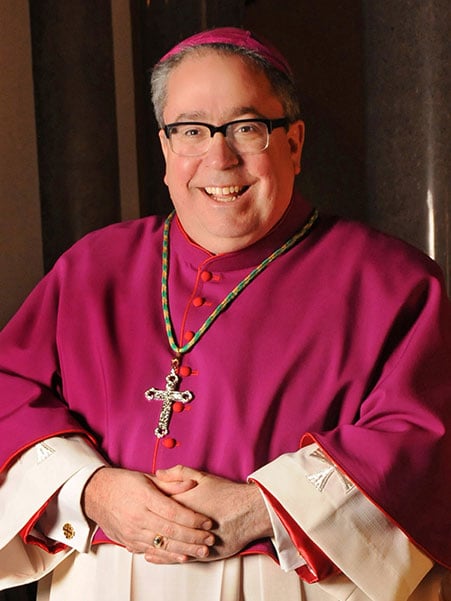Faithful citizenship and conscience formation, Part 1

Photo by Element5 Digital from Pexels
Editor's note: To read Bishop Olson's related column on Faithful Citizenship and conscience formation, click here.
Last January I had the opportunity to travel to Rome with the other bishops of Texas, Oklahoma, and Arkansas for our Ad Limina visit to pray at the tombs of the Apostles and martyrs, to discuss the ongoing mission of the Gospel in our respective dioceses, and to meet with the Holy Father. In that meeting the Holy Father offered us some wise counsel about the formation of consciences of the faithful, especially regarding political responsibility of citizenship.
Pope Francis counseled, “First pray, and then counsel the people to pray for wisdom; then articulate as bishops, who are Successors of the Apostles, what Christ teaches in the Gospel and in the Deposit of Faith handed down faithfully throughout the centuries; pray some more and do not tell people for what party or candidate to vote, especially when they demand that you do so.”
It is my observation that many people frequently omit the first and essential aspect of conscience formation: prayer centered on Christ and within the Holy Spirit. When people omit this essential step, they soon reduce the integrity of the Gospel in its totality to a series of fragmented issues, that while good in themselves, permit the person to rationalize ignoring other issues that are just as essential to the Gospel and inherent to the dignity of the human person created in the image and likeness of the Triune God. Soon, our partisan preferences begin to take on the characteristic of the religion that grasps our hearts instead of the fullness of the Gospel revealed in Jesus Christ and passed down faithfully by the Church through the Magisterium and the ministry of the college of bishops in union with the Vicar of Christ.

There exists a throne in our heart for Christ to be seated in sovereignty. If we do not invite Him to take His rightful place there, something else will. Without Christ as central to our lives through prayer and study, any other value or issue, no matter how inherently good, can soon become a false idol that will dominate us.
Authentic prayer to Christ as guided by the Holy Spirit saves us from adopting a stance of relativism by developing the virtue of prudence within our character. It is through prudence that we recognize intrinsically good actions as distinguishable from actions that are intrinsically evil. It is also through prudence that we can recognize when circumstances make an intrinsically good action into a bad one. If we practice prudence, imbued by grace from God, and which we have cultivated and nurtured through prayer and good works, then we can rest assured that every good action has the underlying goal of love of God and neighbor. Therefore, “prudential issues” in politics should never be simplified as being optional or expendable when compared with other issues that are always and everywhere imperative.
We can see that we have the civic responsibility to vote with a well-formed conscience but our civic responsibility also extends beyond simply casting a vote. It is also always our Catholic responsibility to pray charitably for our elected officials — especially if they are not our preference. It includes holding our elected officials accountable; it includes paying our taxes; it includes service on our part in supporting social but non-governmental actions for helping our vulnerable neighbors; and it includes a disposition of gratitude and respect for those people willing to sacrifice by serving the common good through holding elected office.
The Catechism of the Catholic Church states, “It is part of the Church’s mission to pass moral judgments even in matters related to politics whenever the fundamental rights of man or the salvation of souls requires it (2246).” This election concerns so many fundamental human rights: above all the right to life and other essential human rights dependent on the right to life. As your bishop, I ask you to pray for guidance, to visit our diocesan webpage on Faithful Citizenship, and to please vote.
